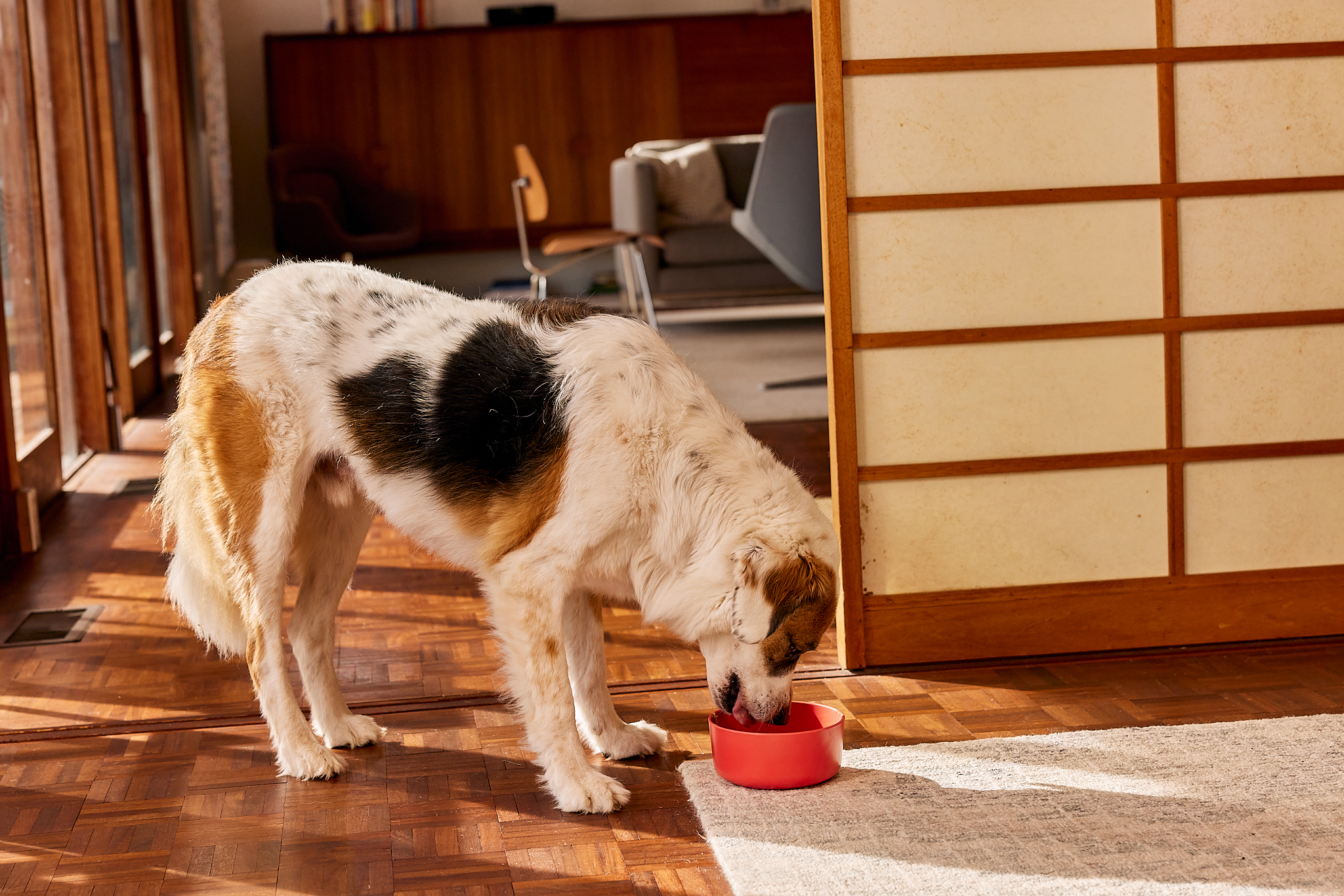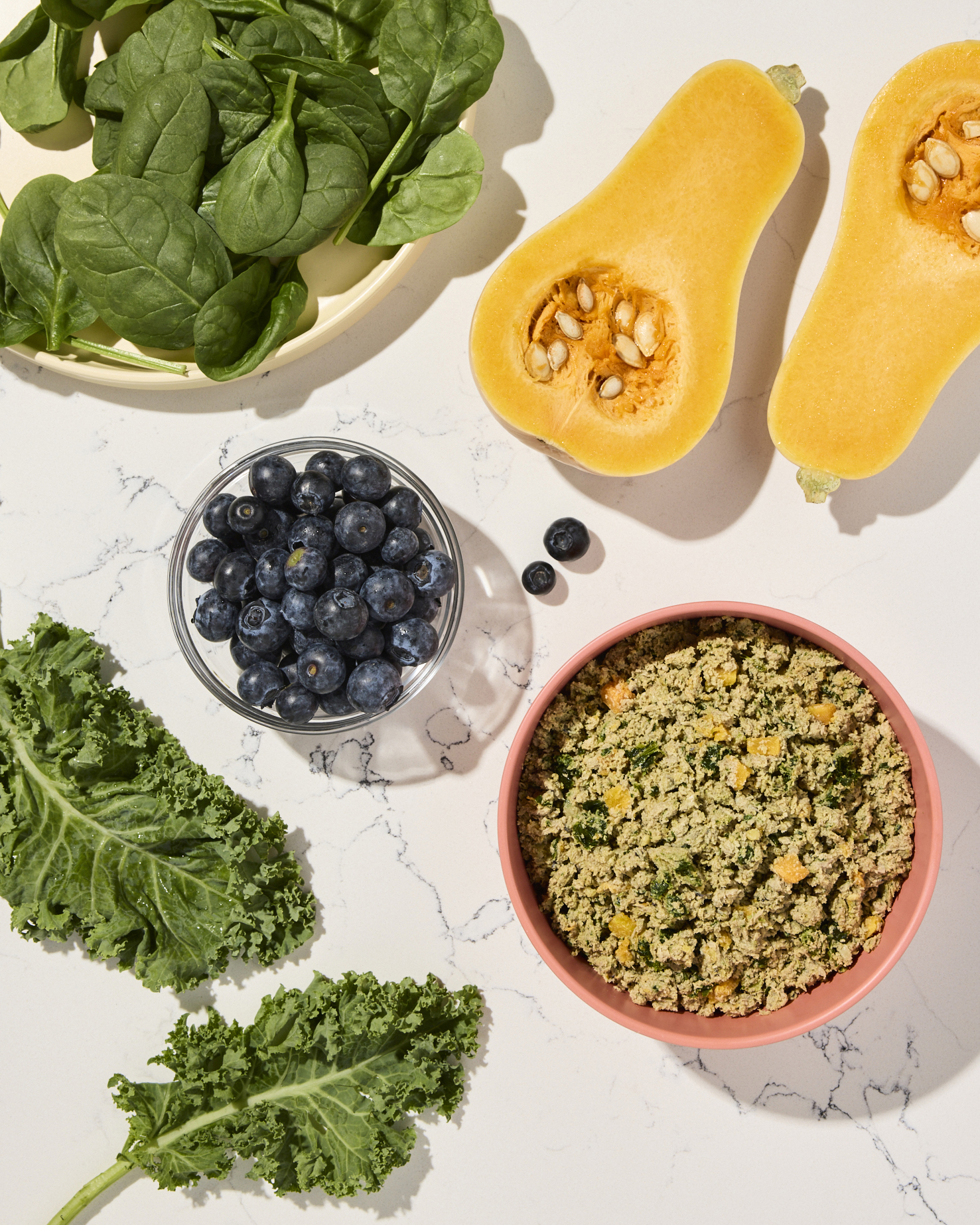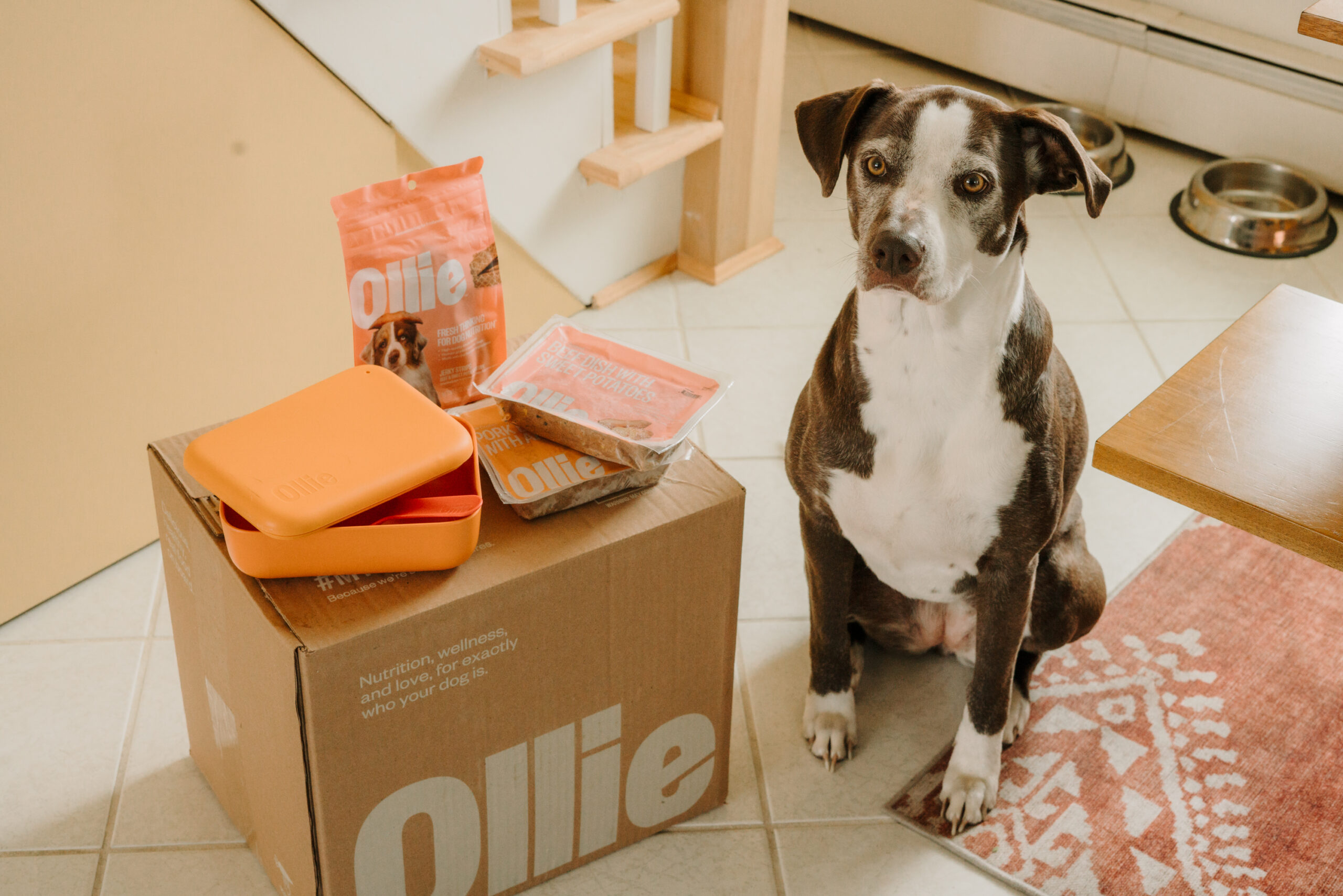Hey Ollie blog readers! We’re offering you an exclusive 60% OFF your starter box! Try now!
Discovering that your dog’s poop is black can be alarming. While occasional color changes might result from diet or medications, consistently black, tarry stools—known as melena—often indicate the presence of digested blood, suggesting bleeding in the upper gastrointestinal (GI) tract, such as the stomach or small intestine.
Melena typically appears as dark, sticky, and foul-smelling feces. This condition is a serious health concern and warrants immediate veterinary attention to identify and address the underlying cause.
What Does Normal Dog Poop Look Like?
Understanding what constitutes normal dog poop can help you identify potential health issues early. Healthy dog feces are usually:
- Color: Chocolate brown, indicating proper digestion and bile production.
- Consistency: Firm and log-shaped, making it easy to pick up.
- Frequency: Typically, dogs defecate one to two times daily, though this can vary based on diet and individual metabolism.
Any significant deviation from these characteristics, such as black coloration, could signal a health problem that needs veterinary evaluation.
Common Causes of Black Dog Poop
Black dog poop, medically termed melena, often indicates the presence of digested blood in the stool, suggesting bleeding in the upper gastrointestinal (GI) tract. However, several other factors can contribute to this condition:
1. Gastrointestinal Bleeding
Bleeding in the stomach or small intestine is a primary cause of melena. This can result from:
- Ulcers: Often caused by prolonged use of non-steroidal anti-inflammatory drugs (NSAIDs) or corticosteroids.
- Tumors: Cancerous growths in the digestive tract can lead to internal bleeding.
- Foreign Bodies: Ingested non-food items can cause blockages and subsequent bleeding.
2. Dietary Factors
Certain foods can darken a dog’s stool:
- Iron-rich Foods: Diets high in red meat or organ meats can lead to darker stools.
- Charcoal: Ingesting substances containing charcoal can result in black feces.
3. Medications and Supplements
Some medications and supplements can cause black stools:
- Iron Supplements: Commonly known to darken stool color.
- Bismuth-containing Medications: Products like Pepto-Bismol can lead to black stools.
4. Parasitic Infections
Intestinal parasites, such as hookworms and whipworms, can cause bleeding in the GI tract, leading to black stools.
5. Bacterial Infections
Infections from bacteria like Salmonella and E. coli can damage the intestinal lining, resulting in bleeding and melena.
6. Liver or Kidney Disease
Advanced liver or kidney disease can affect the body’s ability to process waste, potentially leading to black stools.
Other Signs to Watch Alongside Black Stool
If your dog exhibits black stools, it’s crucial to monitor for additional symptoms that may indicate a more serious underlying condition:
- Vomiting: Especially if it contains blood.
- Lethargy: Unusual tiredness or lack of energy.
- Pale Gums: Can indicate anemia from blood loss.
- Loss of Appetite: Refusal to eat or decreased interest in food.
- Weight Loss: Unexplained or rapid weight reduction.
- Diarrhea: Frequent, loose, or watery stools.
If your dog displays any of these symptoms in conjunction with black stools, it’s imperative to consult your veterinarian promptly to determine the cause and appropriate treatment.
When to Call the Vet
If your dog’s poop is black, it’s essential to consult your veterinarian promptly. Black, tarry stools, known as melena, often indicate bleeding in the upper gastrointestinal tract, which can be a sign of serious health issues.
Immediate veterinary attention is warranted if black stools are accompanied by symptoms such as vomiting, lethargy, pale gums, loss of appetite, or diarrhea. These signs may indicate significant blood loss or other critical conditions.
When visiting the vet, be prepared to provide information about your dog’s recent diet, medications, and any other symptoms observed. Bringing a fresh stool sample can also aid in diagnosis.
Diagnosing the Cause
To determine the underlying cause of black stools in dogs, veterinarians may perform several diagnostic tests:
- Physical Examination: Assessing the dog’s overall health and checking for signs of anemia or abdominal pain.
- Fecal Analysis: Identifying the presence of parasites, bacteria, or blood in the stool.
- Blood Tests: Evaluating organ function and detecting anemia or infections.
- Imaging: Using X-rays or ultrasounds to visualize the gastrointestinal tract for abnormalities such as tumors or foreign objects.
- Endoscopy: Allowing direct visualization of the upper GI tract to identify ulcers, tumors, or bleeding sources.
Treatment Options for Black Dog Poop
Treatment depends entirely on the root cause of the black stool. Once your vet determines the issue—whether it’s an ulcer, infection, ingestion of a foreign object, or a more serious condition like cancer—they’ll guide the next steps. Here’s how treatment might look depending on the diagnosis:
- Ulcers or GI Bleeding: Your dog may receive anti-ulcer medications, antacids, and sometimes antibiotics. If caused by NSAIDs, your vet will likely stop or switch the medication.
- Parasites: Deworming medication is typically prescribed to eliminate intestinal parasites.
- Bacterial Infections: Antibiotics may be necessary to clear the infection.
- Foreign Bodies or Tumors: In some cases, surgery or endoscopy may be required to remove blockages or biopsy growths.
- Iron or Bismuth Intake: If supplements or medications are the cause, you’ll be advised to stop giving them and monitor your dog’s stool for changes.
If your dog is severely anemic from blood loss, hospitalization with intravenous fluids or a blood transfusion may be needed. According to VCA Animal Hospitals, “Melena is considered an emergency if it is persistent or accompanied by symptoms of systemic illness.”
How Diet Impacts Dog Poop Color
What your dog eats shows up in their poop—literally. A nutritious, high-quality diet leads to more predictable digestion and healthy stool. Poor-quality ingredients, artificial dyes, and overly processed foods can throw off gut balance and even lead to darker or inconsistent stool color.
Fresh food made with whole, human-grade ingredients can help:
- Support gut health through natural fiber and moisture
- Reduce inflammation in the GI tract
- Provide consistent nutrient absorption and stool formation
At Ollie, we focus on crafting recipes that are not only delicious, but also easy on your dog’s digestive system. Whether it’s our fresh meals or gently baked options, every recipe is vet-formulated to support healthy digestion, energy levels, and immunity from the inside out.
- Bonus Tip: If you’re noticing poop problems, switching to a cleaner, simpler diet can help rule out food-related causes. Try Ollie Fresh Dog Food to improve your dog’s digestion and gut health.
Prevention Tips: Keeping Your Dog’s Poop Healthy
While you can’t control everything, there are some practical steps you can take to reduce the chances of black dog poop appearing in the first place. Prevention starts with daily habits and regular health monitoring:
1. Feed a Consistent, High-Quality Diet
Choose foods with whole, recognizable ingredients. Avoid mystery “meat meals,” artificial preservatives, and filler grains. Ollie fresh and baked meals use human-grade proteins and veggies to support digestion and nutrient absorption.
2. Keep Up with Parasite Prevention
Regular deworming and flea/tick preventatives help avoid parasitic infections, which can cause intestinal bleeding. Ask your vet about the best schedule based on your dog’s lifestyle.
3. Use Medications Safely
Only give your dog NSAIDs, pain relievers, or supplements under veterinary guidance. Overuse of human medications is a common cause of GI ulcers.
4. Dog-Proof Your Home
Prevent accidental ingestion of harmful items like charcoal, bones, or trash. Swallowing foreign objects can lead to internal injuries and bleeding.
5. Schedule Regular Vet Visits
Routine wellness exams help catch potential issues early—before they show up in your dog’s stool.
Healthy poop is more than just an easy cleanup—it’s a reflection of how well your dog is doing on the inside.
FAQs About Black Dog Poop
Let’s answer some of the most common questions pet parents ask when they see something unexpected in the yard:
Why is my dog’s poop black and smelly?
If it’s foul-smelling, sticky, and tar-like, that’s a red flag for melena—likely from digested blood. This usually points to bleeding in the upper digestive tract. Contact your vet right away.
Can dog treats or food cause black poop?
Yes, especially if the treats contain organ meats, blackberries, or iron-rich ingredients. If the color change is temporary and your dog seems healthy otherwise, food may be the cause—but keep an eye on it.
Is black stool always a sign of bleeding?
Not always. Certain medications like Pepto-Bismol (bismuth) or activated charcoal can darken stool. However, you should never assume it’s harmless without checking with your vet.
Should I stop giving my dog supplements?
If your dog is on iron or other supplements and their stool turns black, consult your vet. You may need to stop or adjust the dosage.
How long should I monitor before calling the vet?
If the black stool lasts more than 24 hours or is paired with other symptoms (vomiting, lethargy, pale gums), don’t wait—get your dog checked out as soon as possible.
Tagged As:

The nutrition your dog needs,
the food they want.

Enjoying our articles? Subscribe our Newsletters and get new articles directly to your inbox
You might also like
4 June 2025
5 MINS READ
How Can Fresh Dog Food Help with Weight Management?
Maintaining a healthy weight is one of the most important aspects of your dog’s overall health and longevity. Being overweight or underweight can result in health complications and conditions that…
23 May 2025
5 MINS READ
Why Fresh Dog Food Makes Happier, Healthier Dogs That Live Longer
Every pup parent wants their dog to live a long, happy life, and the path to a healthier, happier dog starts with what’s in their bowl. Recent research and expert insights reveal that fresh dog …
by Ollie Pets
23 May 2025
8 MINS READ
Why Human-Grade Ingredients Matter for Dogs with Health Issues
For dogs with allergies, sensitive stomachs, or other health concerns, a higher quality of life starts with food made from higher quality ingredients. The right nutrition can make a significant di…
by Ollie Pets







